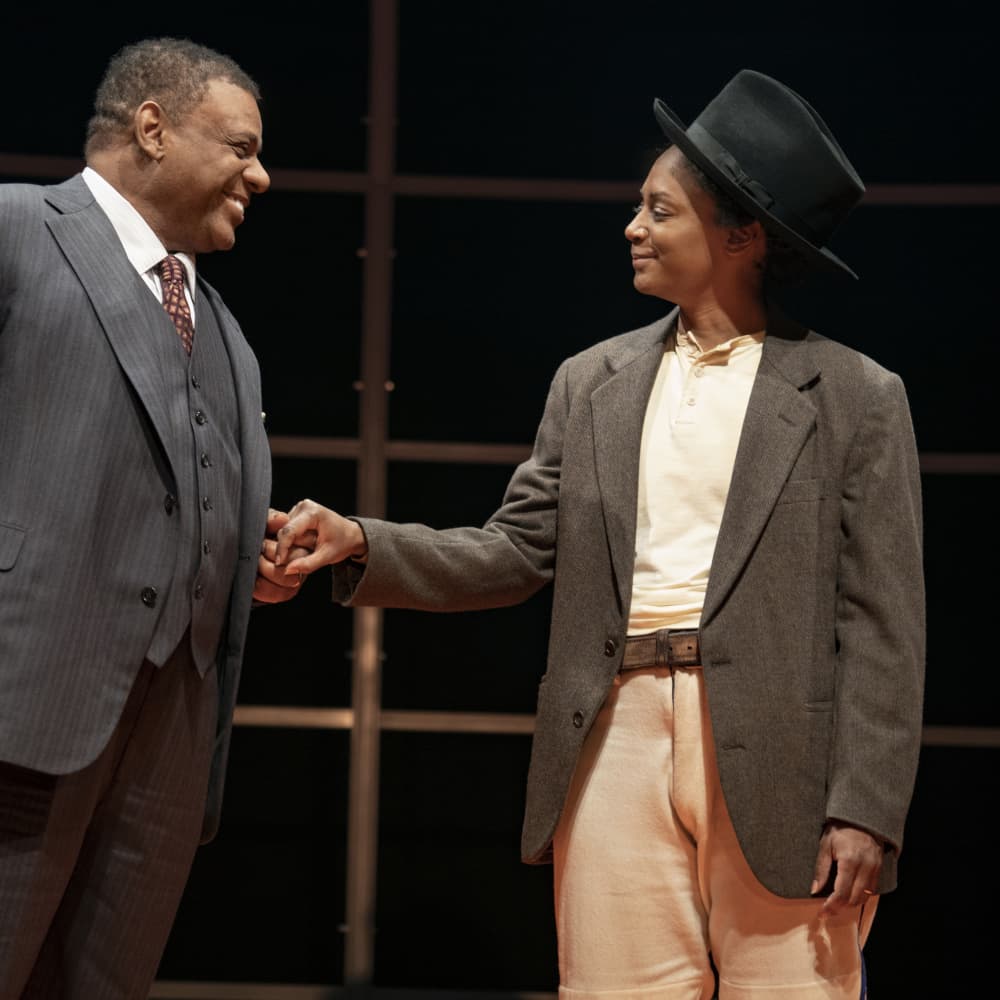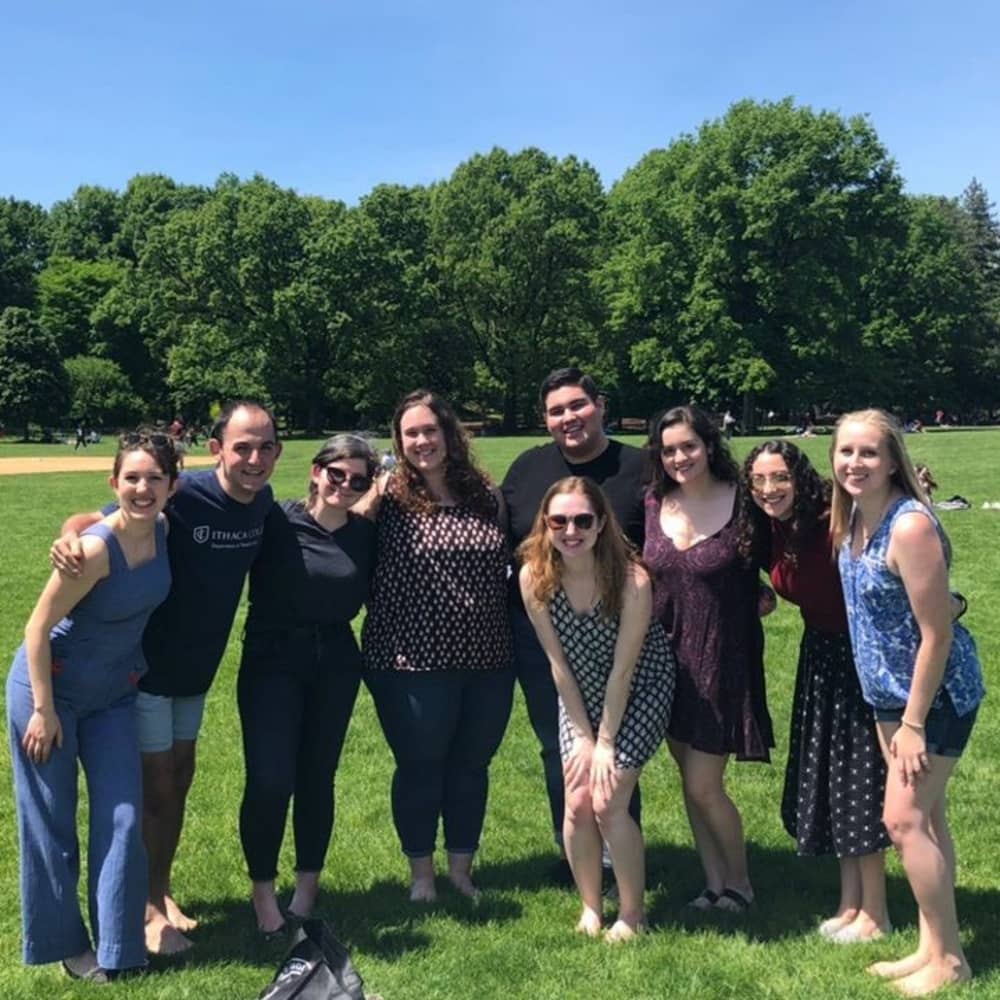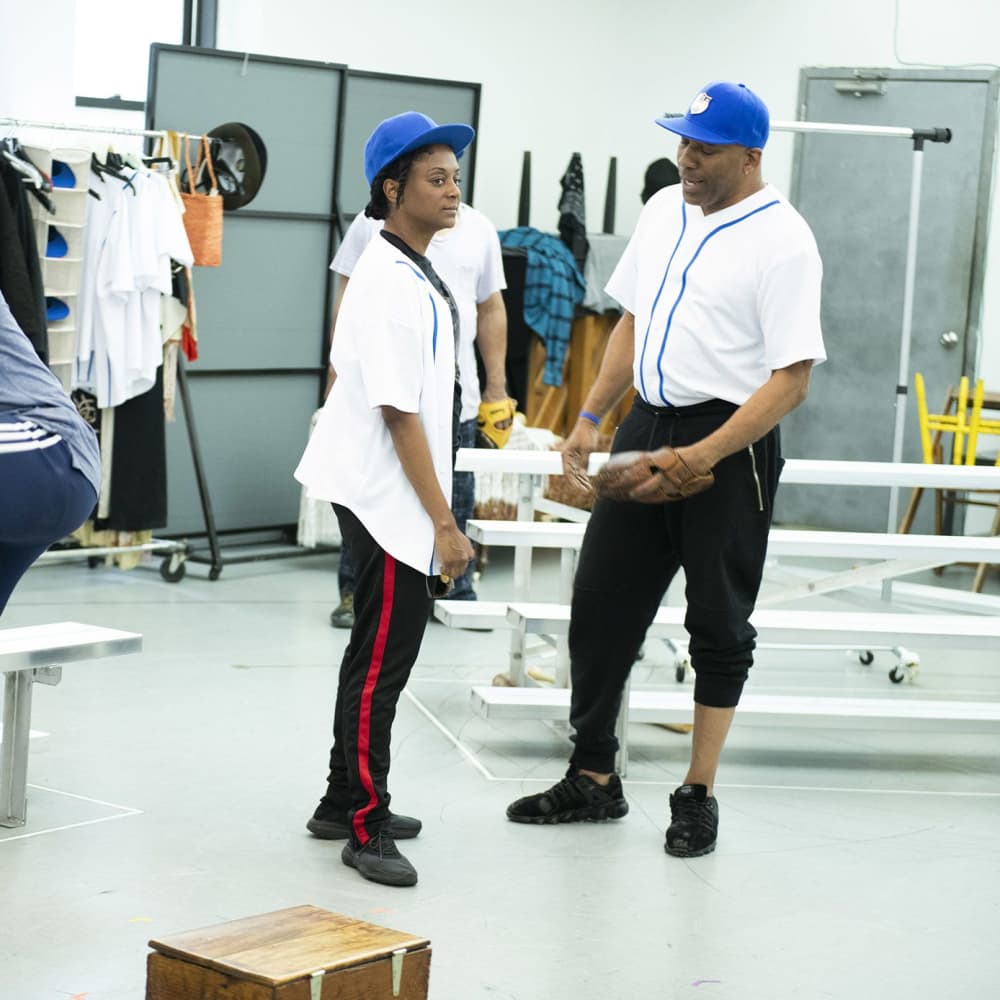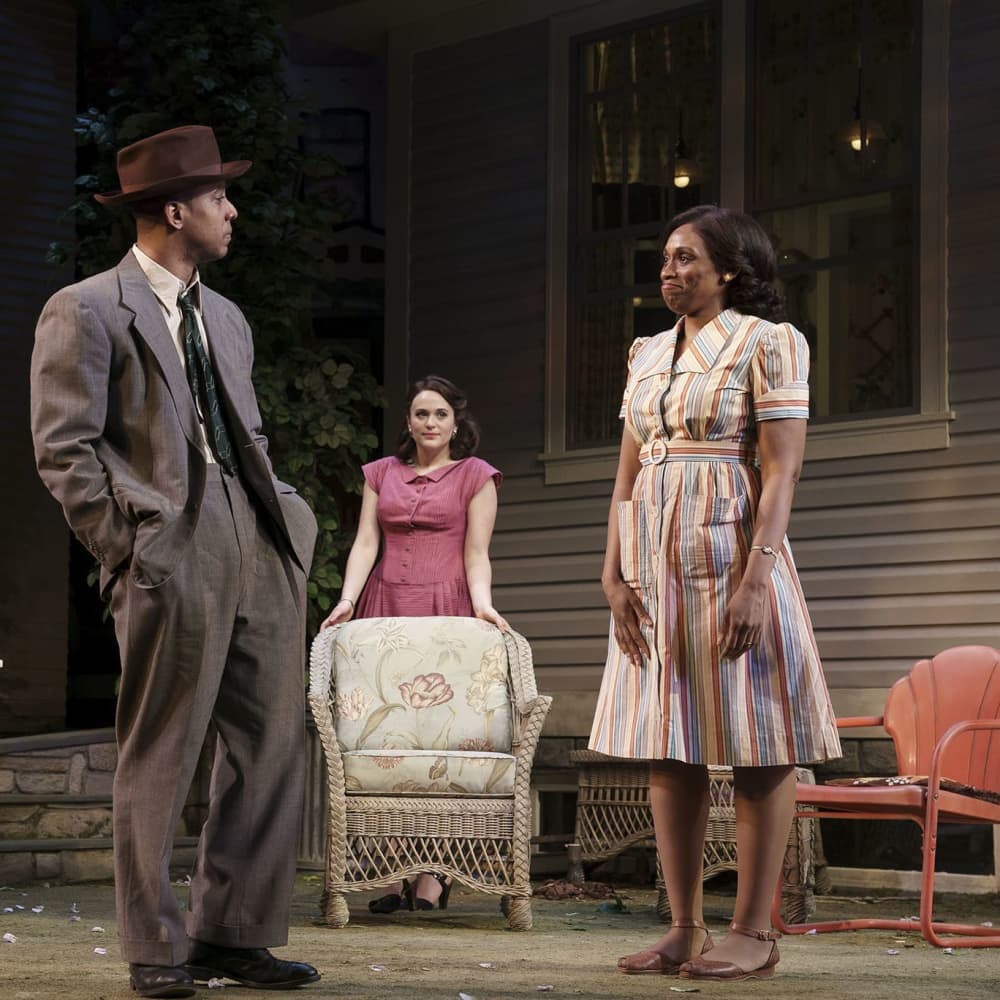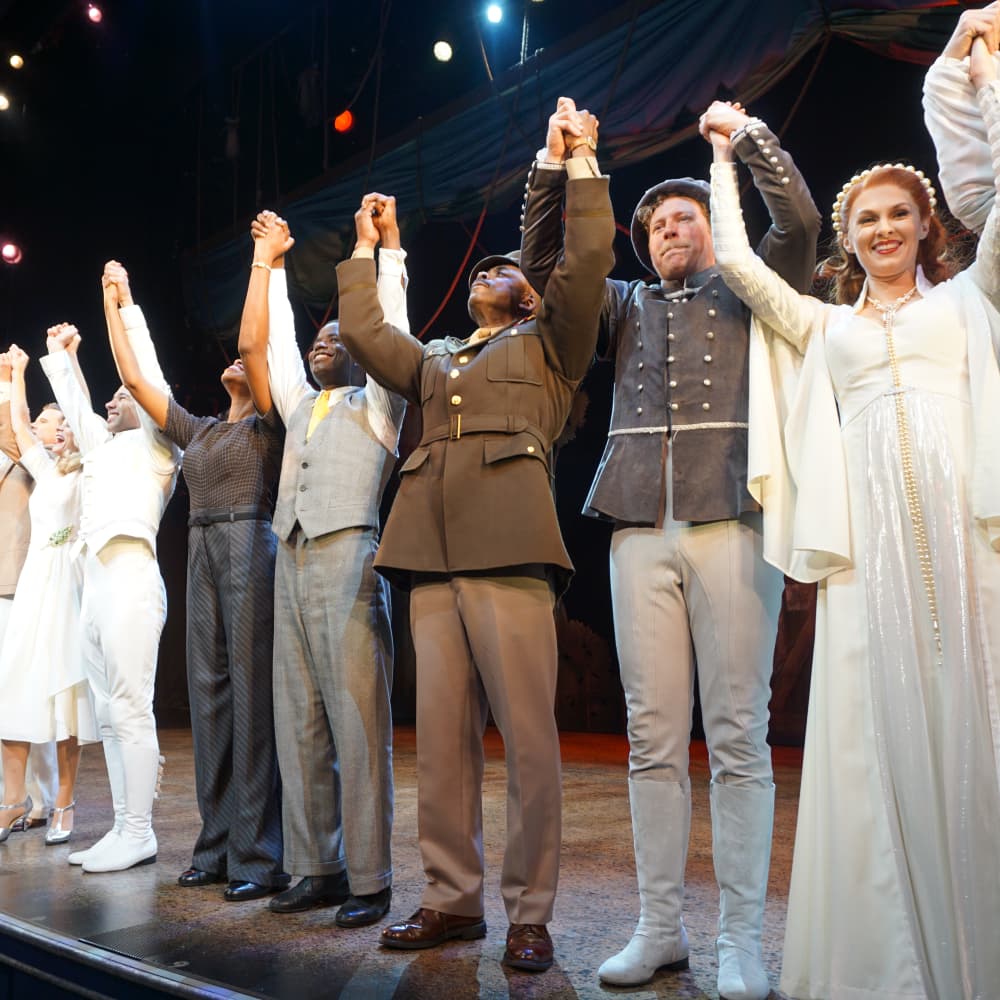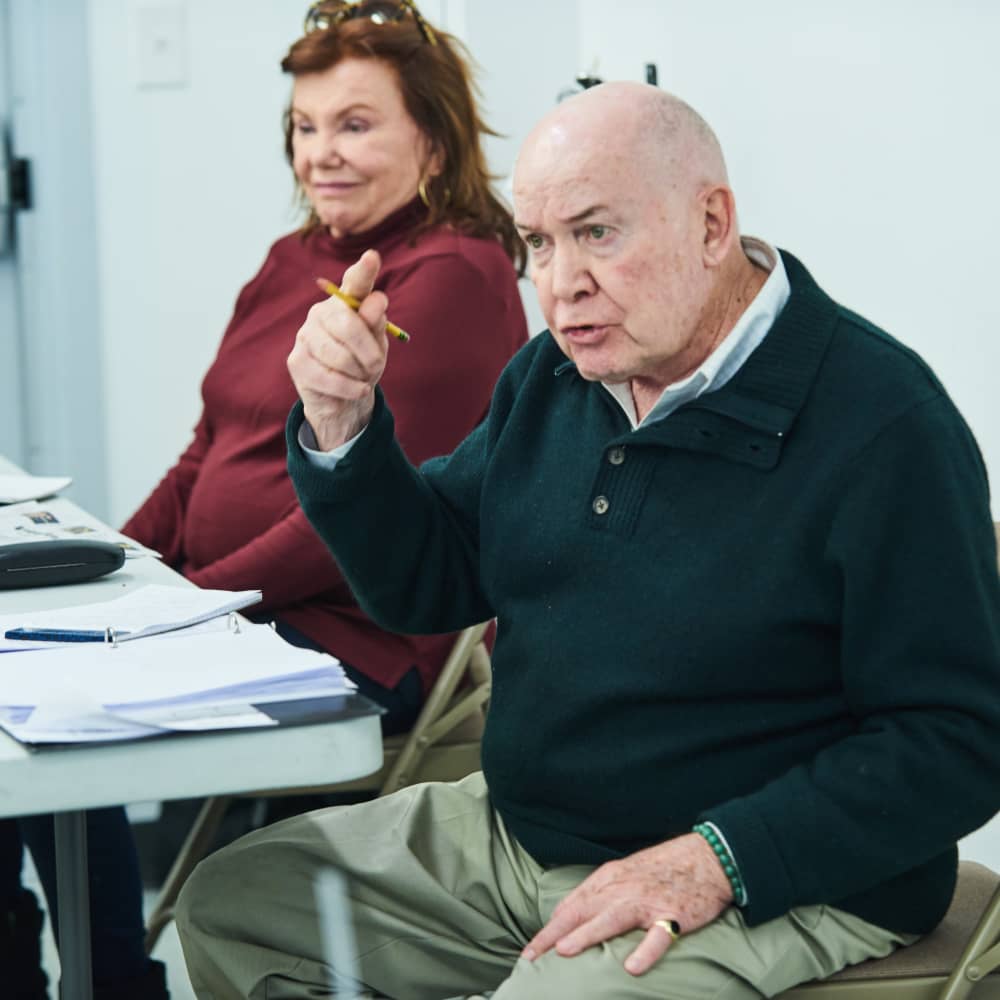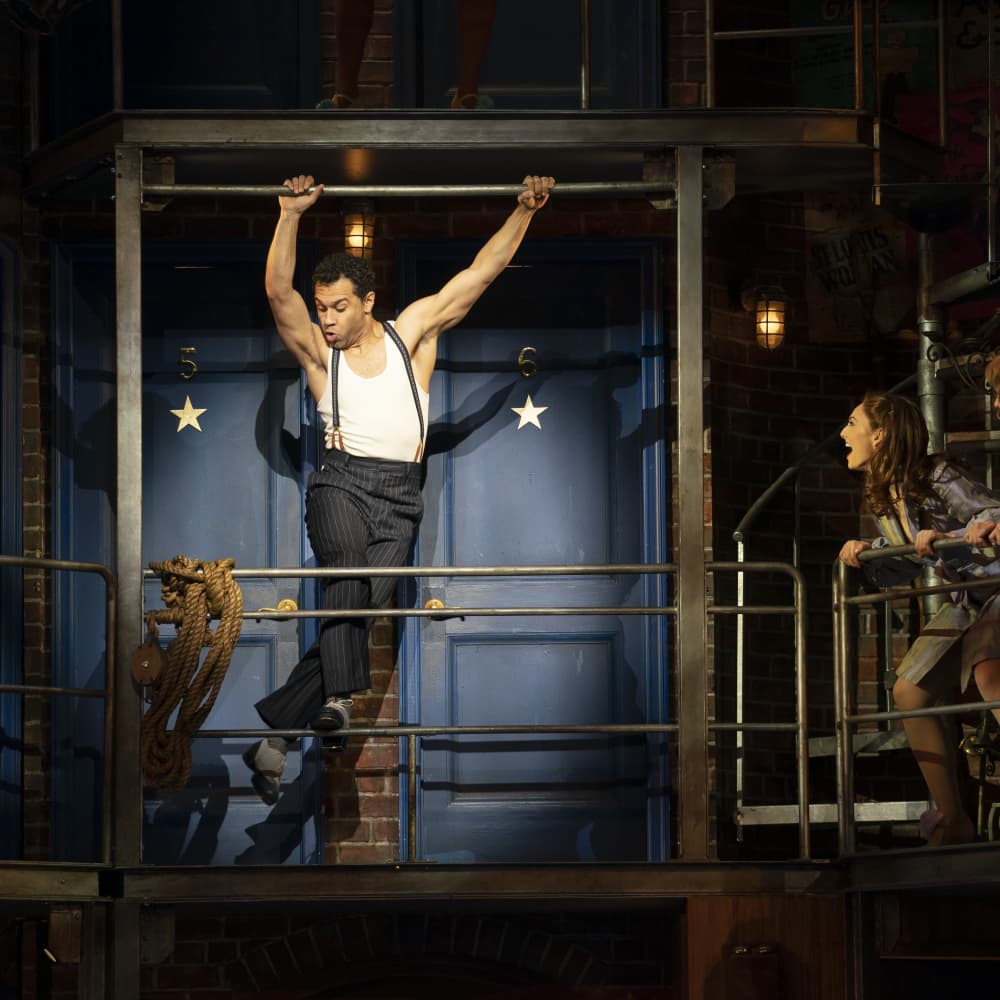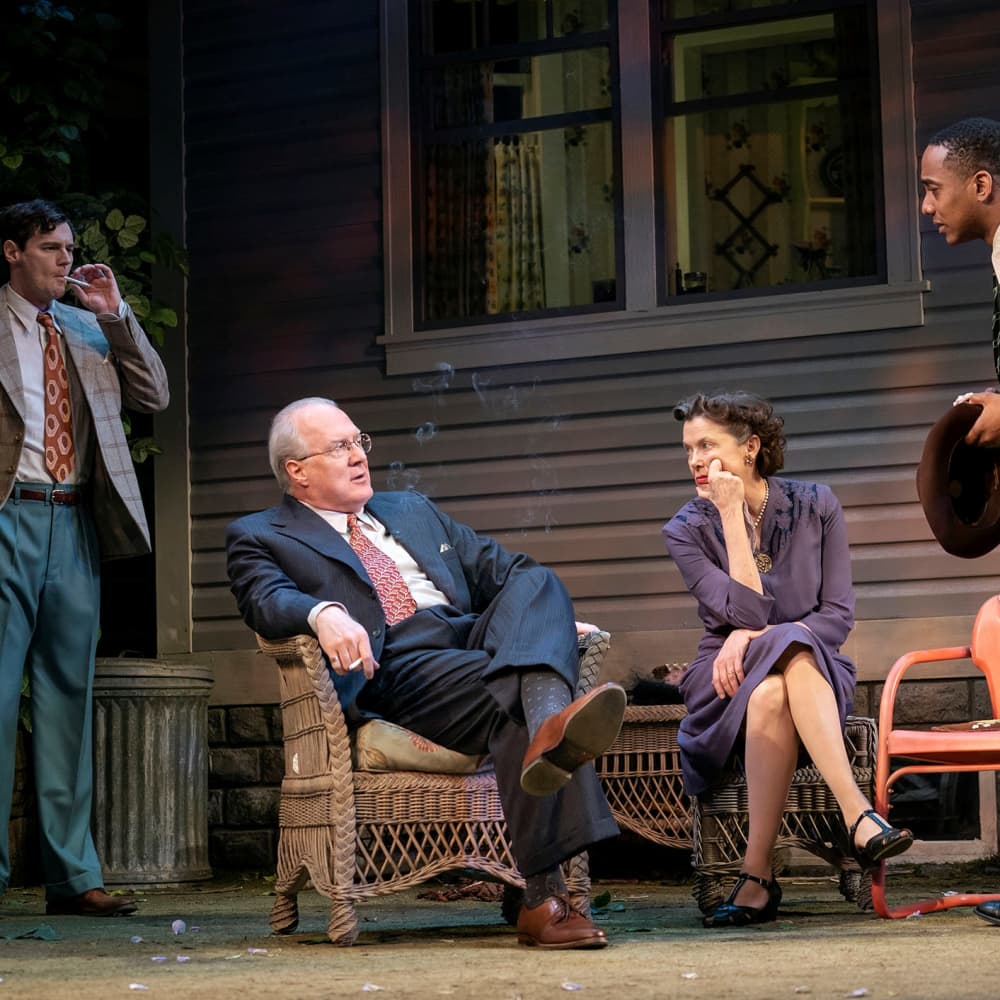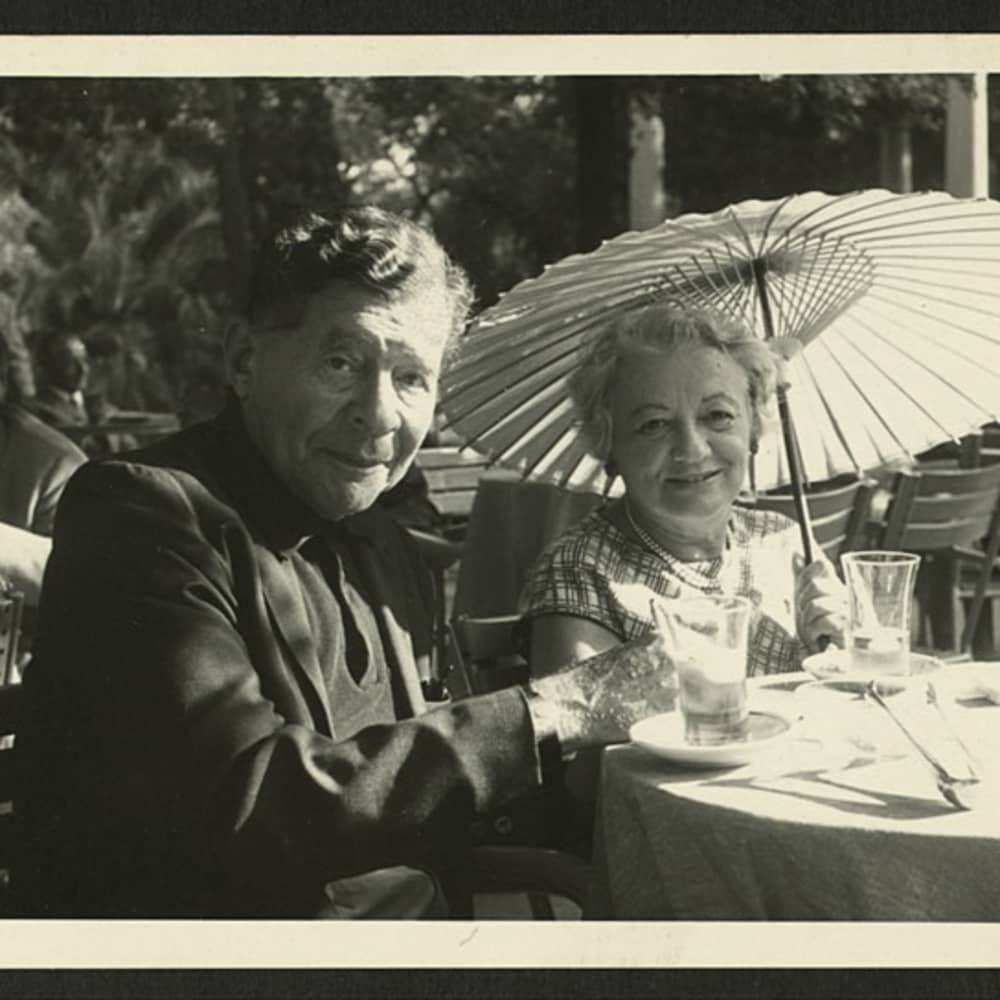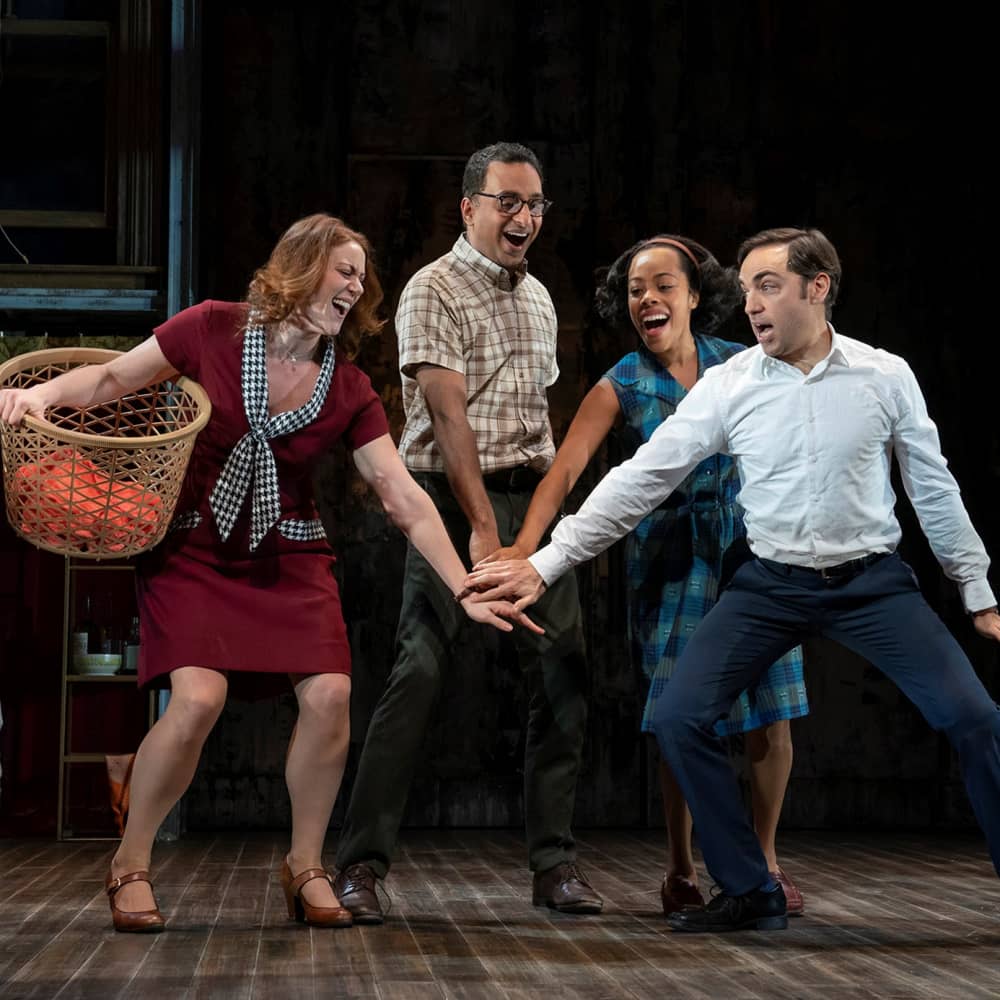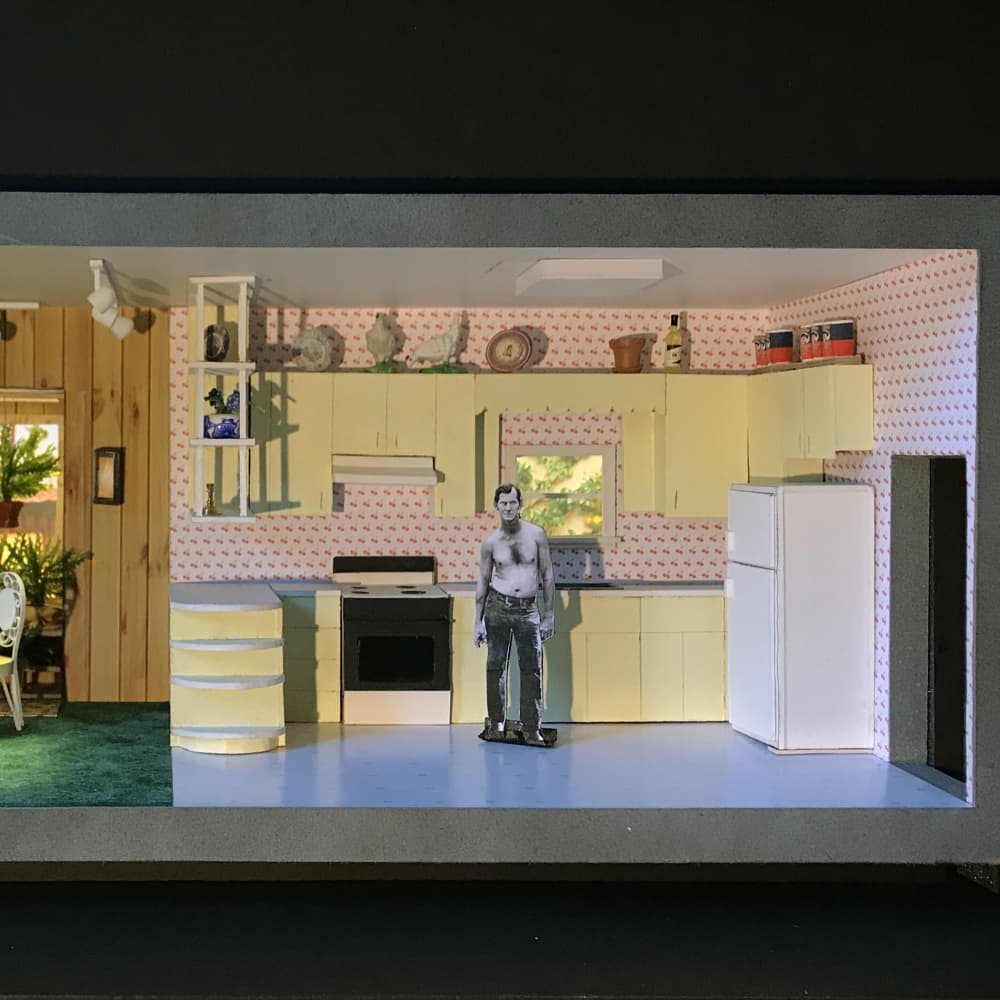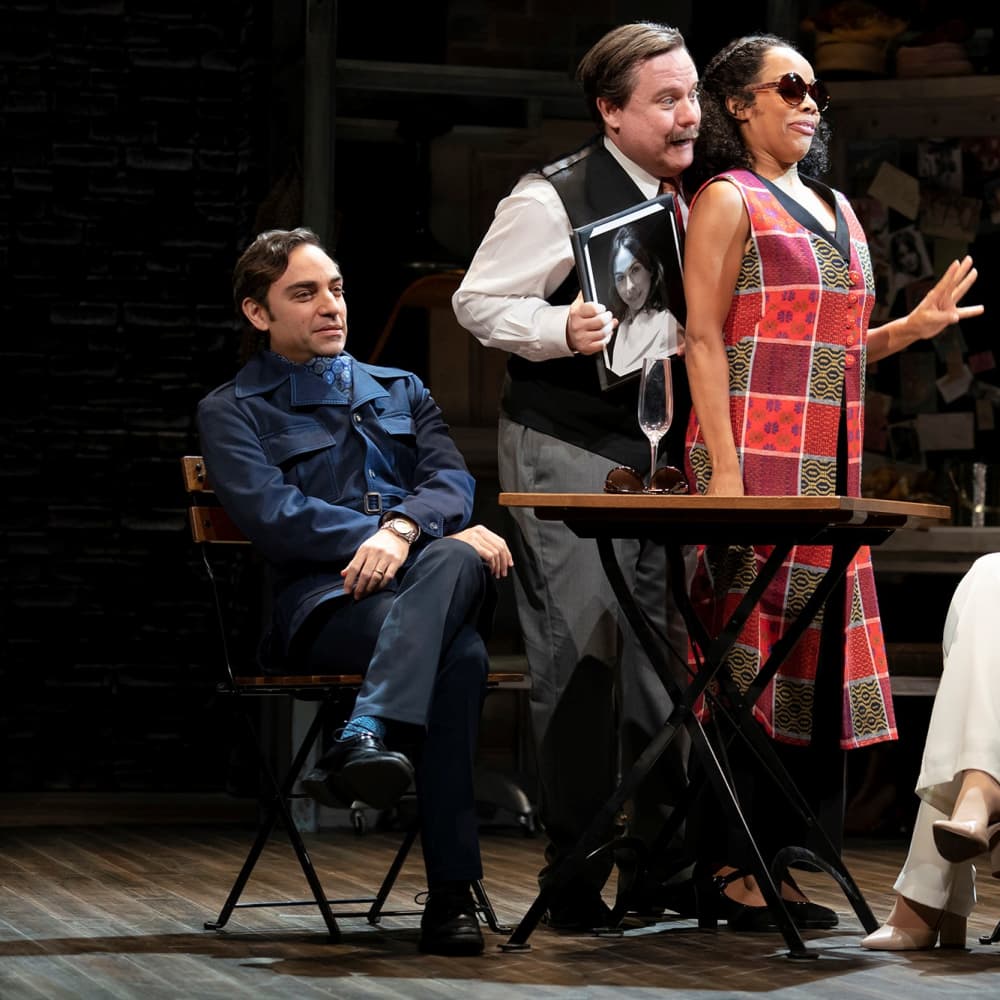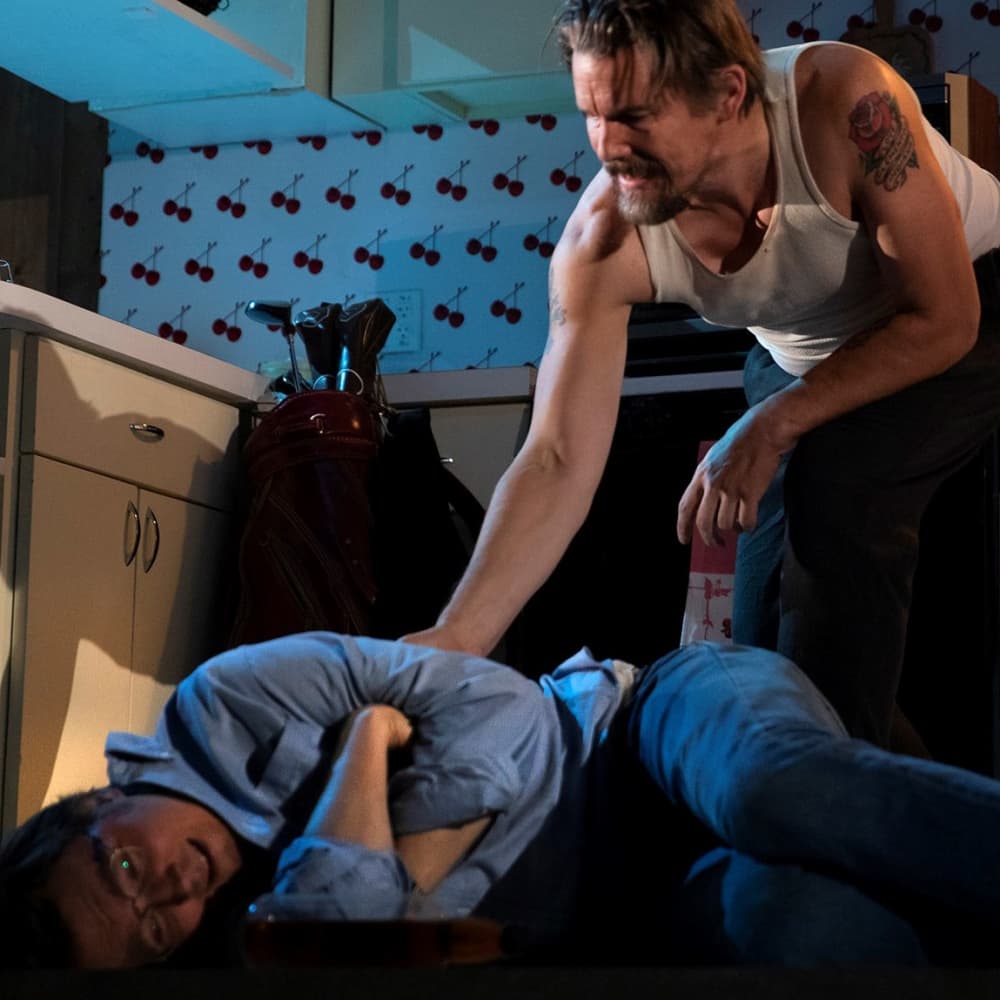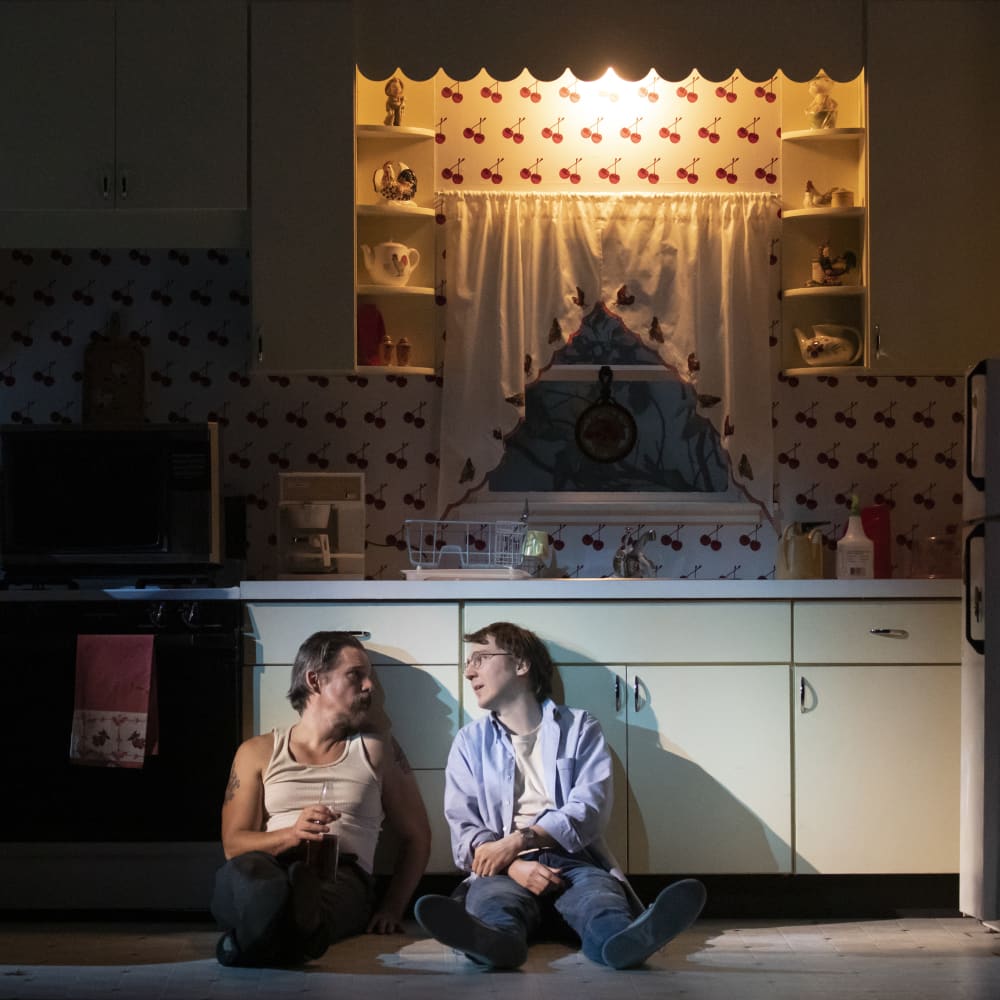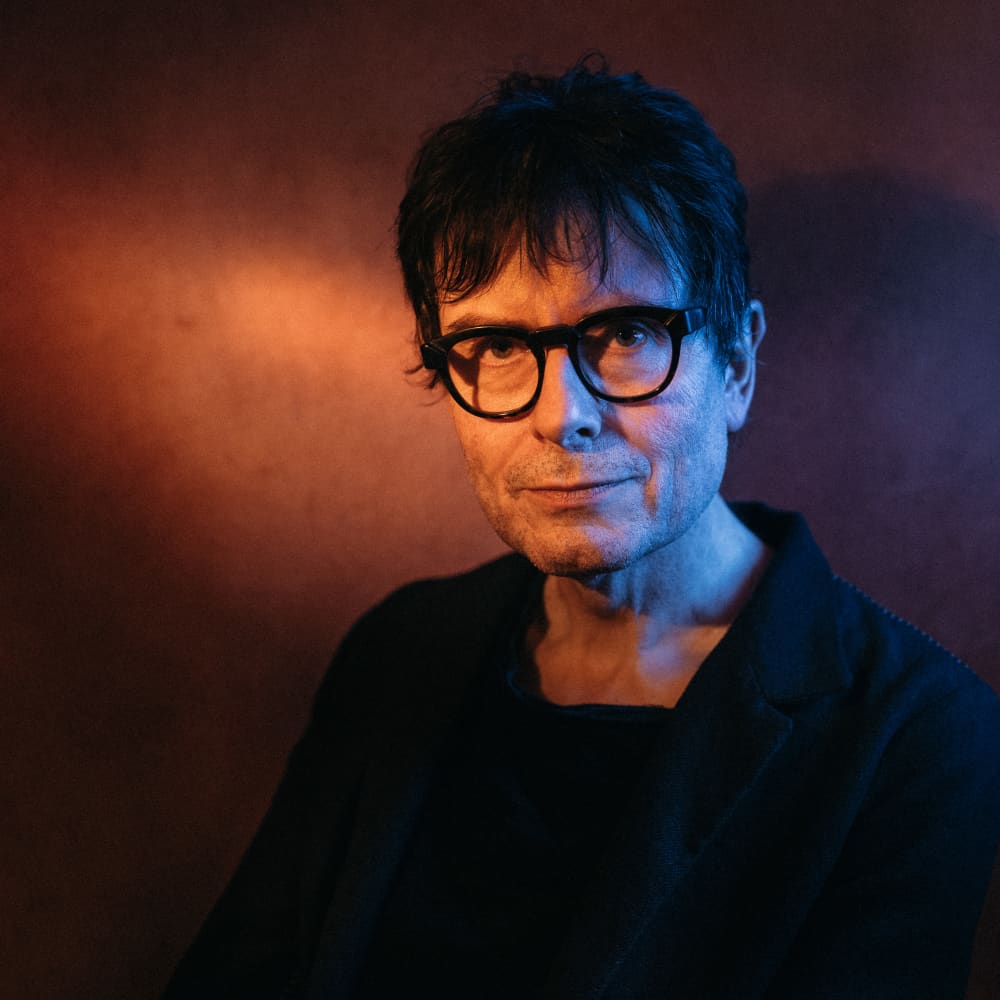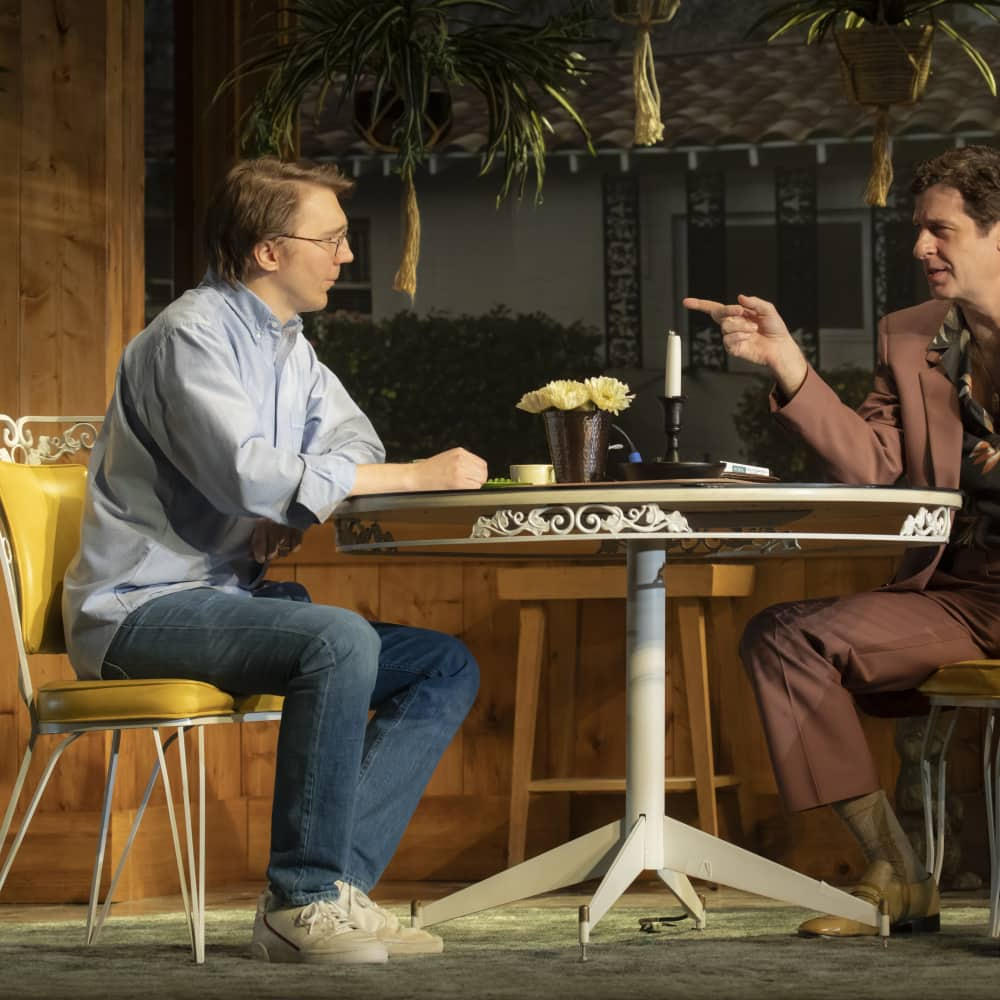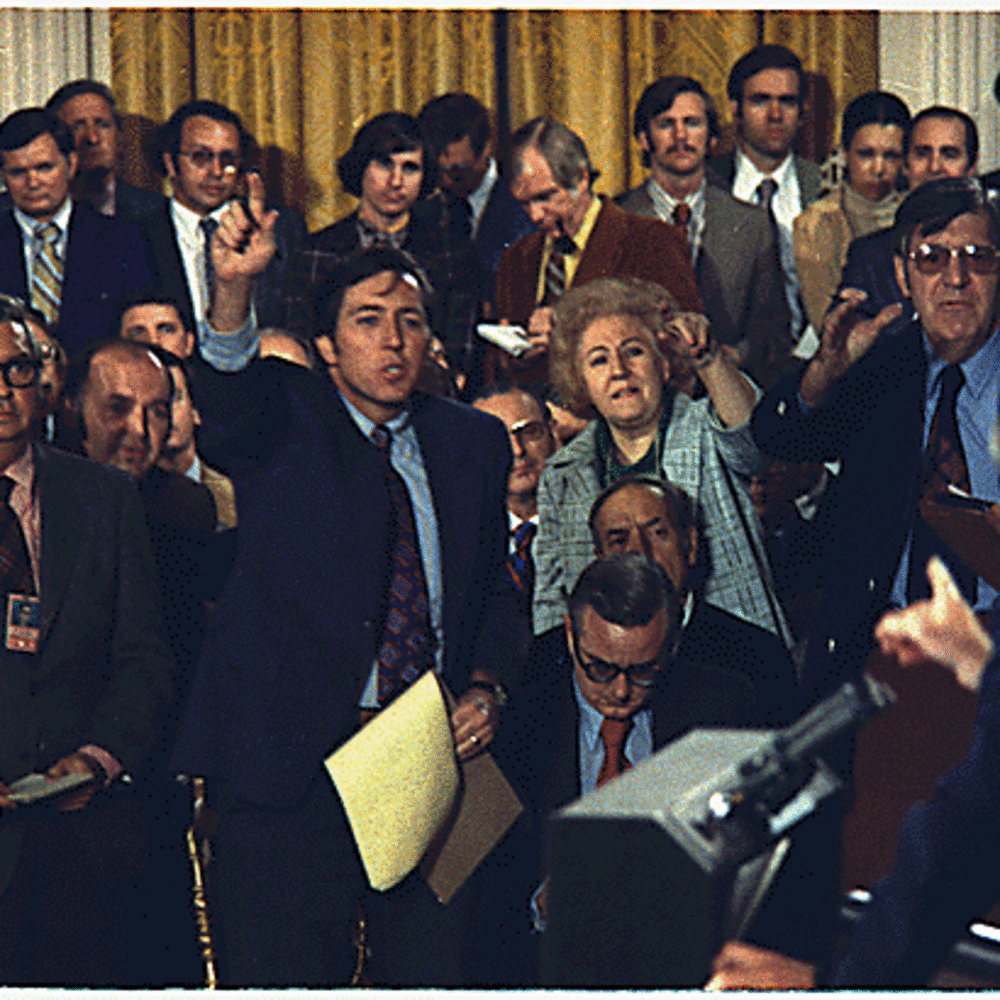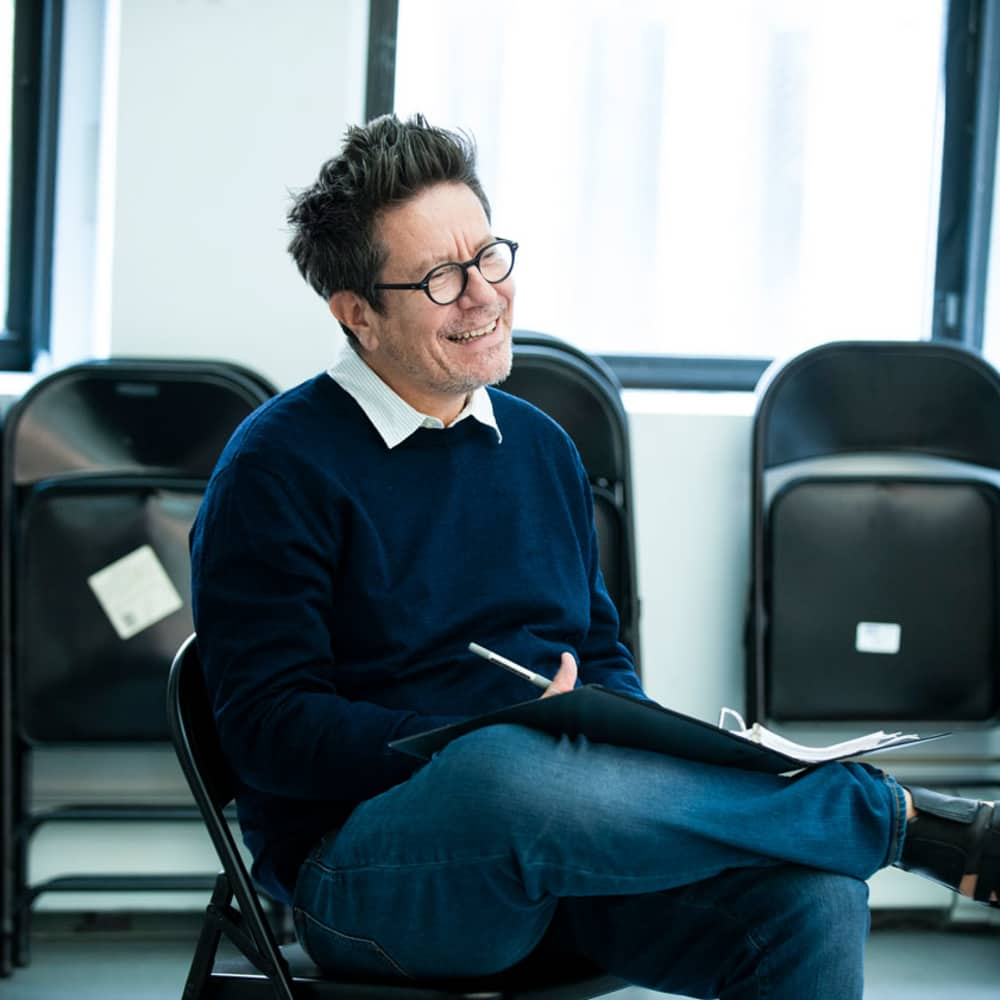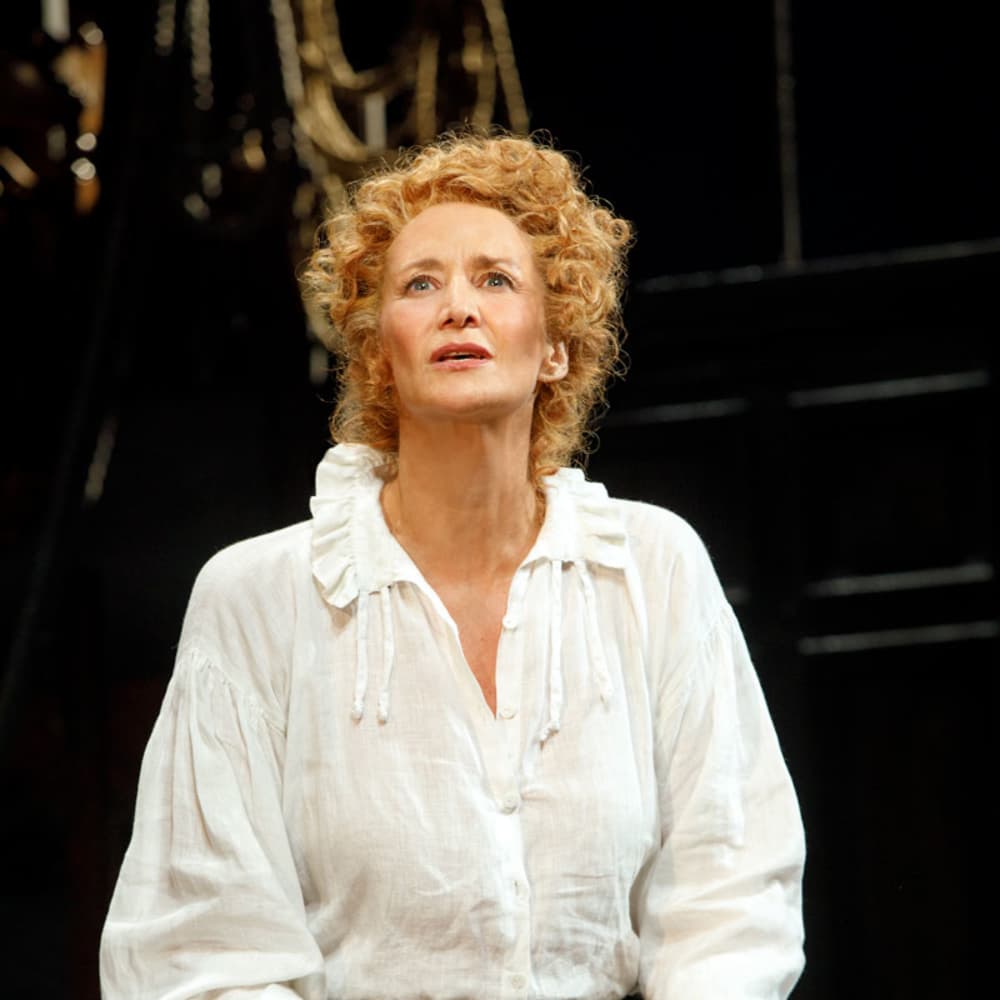Something Clean:
Interview with Selina Fillinger
Posted on: May 8, 2019
Education Dramaturg Ted Sod spoke with playwright Selina Fillinger about her work on Something Clean.
Ted Sod: Where were you born and educated? When did you decide to write for the stage? Did you have any teachers who had a profound impact on you?
Selina Fillinger: I was raised in Eugene, Oregon and went to Northwestern for college, where I ended up doing the acting and playwriting sequences simultaneously. Laura Shellhardt runs the undergrad playwriting department there, and she’s the one who really changed my life. Her intro class was the hardest thing I’d ever done, and when it ended I thought, “Okay, I am not good at this. Never doing that again.” But from that class I had 30 pages of a play, which Laura encouraged me to submit to the university’s Agnes Nixon Playwriting Festival. It was selected—which meant I had to finish it. Laura kept telling me, “You’re a writer,” and I kept thinking, I don’t know, it’s too hard. But I also couldn’t stop. My senior year, Laura partnered me with BJ Jones at Northlight Theatre for what she calls “the working commission.” It was meant to be an academic exercise, where I could experience writing a play for a theatre under the mentorship of a real artistic director. But then BJ decided to put the play in his season, and the theoretical commission became my first professional production. It launched my career, got me my agents, accelerated everything. Somewhere in that process I began identifying as a writer.
TS: Are you still acting when opportunities arise?
SF: Not recently, because life’s been very full of writing and life things. But I do crave it. I’m an introvert, so I can stay long periods of time in my own brain—which after a point gets pretty stagnant. Acting brings me out of myself. My dream would be to write all the time and then perform in one show a year. I’d like to write a one-woman show for myself. I have an idea for one percolating, but it would require a lot of research so I haven’t taken the plunge yet.
TS: Does your past work as a performer influence your work as a writer?
SF: One hundred percent. Nothing made my writing better than my acting, and nothing made my acting better than my writing. Having an instinct for rhythm, genre, character, arc—it helps me find my way into a script so much faster as an actor. And as a writer, my rule is, if I don’t want to play the part, I cut the character.
TS: What inspired you to write Something Clean, and what would you say the play is about?
SF: The inspiration for the play was an article about Brock Turner. He was a Stanford University swimmer who raped a woman behind a dumpster. There were witnesses who pulled him off of her, and he was sentenced to six months in prison and ended up getting out after three months. This year they tried to repeal his sex offender status and, fortunately, that was shut down. I was following that story, and I saw a photo of him walking to court holding his mother’s hand. It was an incredibly domestic and maternal image. She looked stoic and warm; she looked almost like she was taking him to his first day of school. If you saw the photo out of context, you wouldn’t have known she was walking her rapist son to court. I couldn’t stop thinking, what is the cognitive dissonance you have to do every single day when you’re a woman whose son was seen raping another woman? To me, it was fascinating, and I wanted to see if I could write about sexual assault without giving voice to a rapist character or depicting a rape on stage.
I would say Something Clean is about consent and intimacy and the ways we are societally complicit in the violations that occur. These things don’t happen in a vacuum. Somewhere along the way, this young man thought it was okay to do this crime. I feel we’ve given enough airtime to the rapists and that it’s time to look at the other characters around them. The people who are related to them and those who suffer by their actions.
TS: What kind of research did you have to do in order to write this play?
SF: I didn’t look a lot at the Brock Turner case. Yes, it was in the back of my mind, but I jettisoned a lot of the details. That particular case didn’t focus on his parents, aside from the statements they made to the courts, which I did read. There were certain details I incorporated from the case, but the mother in my play is a character of my own making, as are the other characters. I interviewed people who worked at sexual assault centers and talked to a young man who held a job similar to the job that I gave to the character Joey. I also read selected parts of A Mother’s Reckoning, which was written by the mother of Dylan Klebold, the Columbine shooter. I would read a few paragraphs and then write and read a few more paragraphs and then write again. She speaks so candidly and articulately about the whole experience and how it impacted her. Klebold’s mother has truly dedicated her life to understanding why her son did what he did, and she is trying to prevent it from ever happening again.
TS: By focusing on how violent crime affects the parents of the perpetrator, you’re really dealing with collateral damage. Correct?
SF: Collateral damage, yes, but also those who are indirectly complicit. I think the play follows the fallout, but it’s far more about what do we do going forward. How do we raise our children to understand what consent means and to have healthy relationships? Charlotte, the mother in my play, is looking for redemption and answers. She feels responsible. One thing that stayed with me from reading A Mother’s Reckoning is in the forward. Both Klebold’s mother and father were asked, “If your son were here right now, what would you say to him?” I’m paraphrasing, but the father said something along the lines of, “I’d ask him what the hell he was thinking and why he did this?” And the mother said, “I’d ask his forgiveness for not seeing this coming and preventing the whole tragedy.” It’s really indicative of how people deal with grief along gender lines. Women, mothers especially, tend to internalize the suffering. The play deals a lot with the different ways we grieve. It’s about people closing the distance between them and moving toward each other.
TS: Will you tell us about the development process for this play? Do you expect to do much rewriting?
SF: Sideshow Theatre is an awesome Chicago theatre, and they reached out to me about their Freshness Initiative. They pick three emerging playwrights, commission them, and then they do readings of their plays. Something Clean was developed over a series of workshops with a variety of actors. Every play has a different revision process. This particular one is so tender and quiet, the revisions are all about calibration. It’s like using a fine-tooth comb to get each moment balanced.
TS: In the epigraph of your script, you write two quotes. One from Pablo Neruda: “I love you without knowing how, or when, or from where.” And one from Margaret Atwood: “I am the space you desecrate as you pass through.” Why were these quotes important for you to include in the script?
SF: They are single lines excerpted from longer poems. I feel that they represent two sides of unconditional parental love. I tend to pick quotes for me more than anyone else. It is usually one of the first things I do. It’s a center, a thing to come back to if I’m getting lost in the play.
TS: Had you seen director Margot Bordelon’s work before you became collaborators?
SF: The workshop we did at Roundabout for the Underground reading series was a blind date. She’s a writer’s dream. She doesn’t try to “fix” or “solve” the play—she tries to open it, unravel it. It’s such a flattering and generous way of approaching new work.
TS: What questions did you and Margot ask each other about the play?
SF: I think a lot of what we go back and forth about are tiny things like, should we add a pause there? No matter what, she takes the script as it is, and she finds a way to make it work. It’s my job to listen and realize when she and the actors are working a bit too hard so that I can rewrite to make it easier for them.
TS: Who are your favorite playwrights and why?
SF: I love playwrights who blur tragedy and comedy. That’s why I love Chekhov so much. Edward Albee, Tennessee Williams, Caryl Churchill—those giants, who have wicked humor and the deepest souls. Contemporary playwrights: Will Eno, Tarell McCraney, Suzan-Lori Parks, Jiehae Park, Sarah Ruhl, Antoinette Nwandu. I love Jen Silverman’s play The Moors, and I just saw Ming Peiffer’s Usual Girls, which blew my mind! I thought it was extraordinary.
TS: What keeps you inspired as an artist?
SF: Doing things that are not theatre. Reading novels, going to museums, going to bed early, going for walks. It took a long time for me to give myself permission to do all that, but I find that if I’m uninspired, it’s usually because I haven’t left enough room for dreaming and living.
TS: What advice would you give a young person who says they want to write for the stage?
SF: Do it. I was so lucky to have parents who told me that I could do anything that I wanted. That’s so rare, and I’m so fortunate. A young writer should absorb information from any teacher who is willing to give it to them, but they should be willing to throw it away and come up with their own “rules” of what makes a good play. For a long time, I adhered to what I had been told were the rules of theatre, and it’s only lately that I’ve started to break those rules.
Something Clean is now playing at the Harold and Miriam Steinberg Center for TheatreBlack Box Theatre through June 30th. For tickets, visit roundabouttheatre.org.


